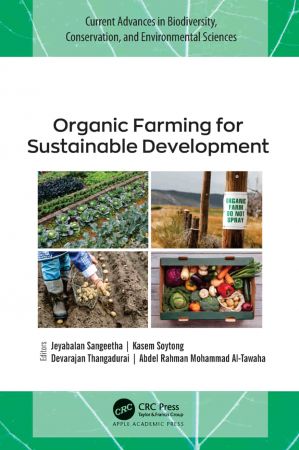English | 2022 | ISBN: 9781003284055 | 436 pages | True PDF | 21.09 MB
This new volume addresses the growing use of organic farming in recent past decades fueled by the concern with the many deleterious effects of conventional agricultural practices, which employ chemical fertilizers, pesticides, and herbicides for large scale production of food. It focuses on sustainable development in farming, primarily detailing the application of different natural resources as manure for organic farming. The authors discuss efficient and cost-effective uses of natural and available resources to produce healthy food while at the same time helping to conserve the environment.
Section I of Organic Farming for Sustainable Development discusses in detail the application of microorganisms such as Trichoderma sp., Azospirillum sp., endophytic microorganisms, arbuscular mycorrhiza, Chaetomium sp., and bioactive secondary metabolites in organic farming practices. Section II explores the potential applications of organic amendments and sustainable practices for plant growth and soil health using garlic products, organic substrates, biochar, organic mulching, and tillage and weed management. In addition, Section III summarizes the impacts and prospects of organic crop production technology on health, food safety, and quality.
The authors bring together important information that will be helpful in designing organic farming methods for soil sustainability and crop productivity as well as for nutritious food produced efficiently and cost productively. The book provides valuable insight to efficiently and cost-effectively use natural and available resources to increase the nutrient content of our food as well as to manage the organic wastes coming from other sectors, such as from cattle farms without polluting the surroundings.
DOWNLOAD





 Reply With Quote
Reply With Quote
